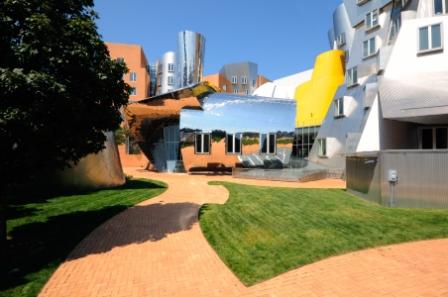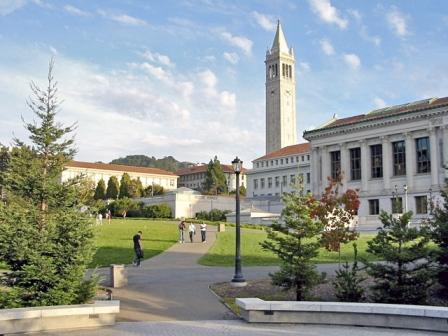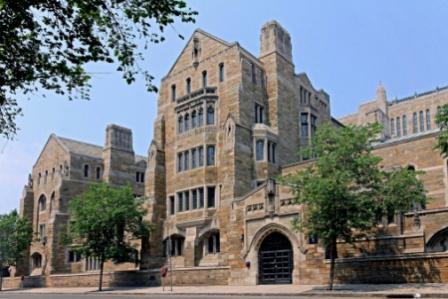This top 10 universities for economics is based on the 2013 QS World University Rankings by Subject. While many of the 30 subjects ranked are dominated by US and UK universities, economics is an especially extreme instance – this top 10 includes eight US institutions and two from the UK.
But while relatively narrow in geographical terms, these 10 universities are much more diverse when it comes to the scope of economics research being pursued. Read on to find out which economics-related questions and issues are currently under investigation at these world-leading economics departments.
1. Harvard University
Research conducted by Harvard’s economics department is categorized under four headings: LEAP (Lab for Economic Applications and Policy); Weiss Family Program Fund; EdLabs and Harvard and Beyond.
LEAP aims to provide scientific evidence for government-related policy debates, which usually involves either field experiments or empirical research. The Weiss Family Program Fund, a collaboration with MIT and Boston Universities, researches issues that affect less developed countries. EdLabs researches ways of closing the achievement gaps between demographics, while Harvard and Beyond conducts research into the career trajectories of former Harvard students.
 2. Massachusetts Institute of Technology (MIT)
2. Massachusetts Institute of Technology (MIT)
MIT has four centers involved in economics research: J-PAL (Abdul Latif Jameel Poverty Action Lab; CEEPR (Center for Energy and Environmental Policy Research); SEII (School Effectiveness and Inequality Initiative) and WEL (World Economy Lab).
J-PAL provides scientific results to policymakers, based on its research into development and poverty. CEEPR is partly sponsored by the Harvard economics department, with relevant research including the economic impact of issues related to energy and the environment. SEII conducts mostly domestic research into education and poverty, which is made available to policymakers and educators, and WEL supports policy-oriented research.
3. London School of Economics and Political Science (LSE)
Research programs at LSE’s Center for Analysis of Social Exclusion (CASE) include the analysis of welfare spending and outcomes during the term of the UK’s last Labour-party government. This will be tracked through the current coalition government until 2015. On an international level, CASE’s research includes looking at the evolution of inequalities in wealth, education, income and earnings over the last 30 years, and differing consumption patterns between high and low-tax countries.
4. University of Chicago
The University of Chicago’s Economic Research Center participates in a Human Capital and Economic Opportunity Global Working Group (HCEO), which researches human capital development, personal income and opportunity inequality. Another research initiative is named the Heckman Equation, after Nobel-prize winning economics Professor James Heckman, based at the university since 1973. It disseminates his research and that of his colleagues about the advantages of early investment in people.
 5. University of California, Berkeley (UCB)
5. University of California, Berkeley (UCB)
UC Berkeley’s Institute of Business and Economic Research (IBER) provides administrative oversight and support for nine research centers and laboratories. Research projects supported by IBER include demographic and fiscal projections and analysis related to aging by the Center on the Economics and Demography of Aging (CEDA), and the connection between economics and politics by the Berkeley Center for Political Economy (BCEP).
6. Stanford University
Stanford’s Professor Al Roth was a shared winner of the Nobel Prize Medal in Economics last December. He won this for research in designing tailored market institutions for different parties, which has been applied to real world applications, such as the creation of paired donor kidney exchanges. Other economics research fields at Stanford include Behavioral and Experimental Economics, Health Economics and Economics of Education.
7. Princeton University
Princeton’s Professor Christopher Sims has also been a shared winner of the Nobel Prize in Economics, this time in December 2011, for his contribution to the development of analysis tools for economic causes and effects of monetary policy. The university’s Department of Economics’ current research includes an exploration of the increasing inequality between colleges and universities; monetary and fiscal policy interactions; and a look at labor market risk and the value of human capital.
 8. Yale University
8. Yale University
Current research projects in the undergraduate program of Yale’s economics department include assembling economic indicators from early to mid 20th century India in an attempt to assess the long-term cost of the 1918 influenza outbreak; the long term impact of Medicaid (US health insurance program for the poor); and an ongoing study into the reasons behind lack of investment by Ghanaian farmers.
9. University of Cambridge
At the University of Cambridge, the Faculty of Economics has many research groups, including the Experimental and Behavioral Economics Group (CEBEG), which looks at diverse topics such as corruption and favoritism, household behavior and climate change. Another is the SuperGen (Sustainable Power Generation and Supply) Project, which examines issues involved in developing a system of sustainable energy generation and supply.
10. Columbia University
Columbia University professor and economist Jagdish Bhagwati has recently published a book that looks at the policies that have helped reduce India’s poverty rate. In addition, the Finance and Economics Division at Columbia Business School has produced several books this year, including a guide to coming up with creative innovative solutions in business by Professor Duggan; and a guide to how to achieve results by changing motivational focus, by Professor E. Tory Higgins.
